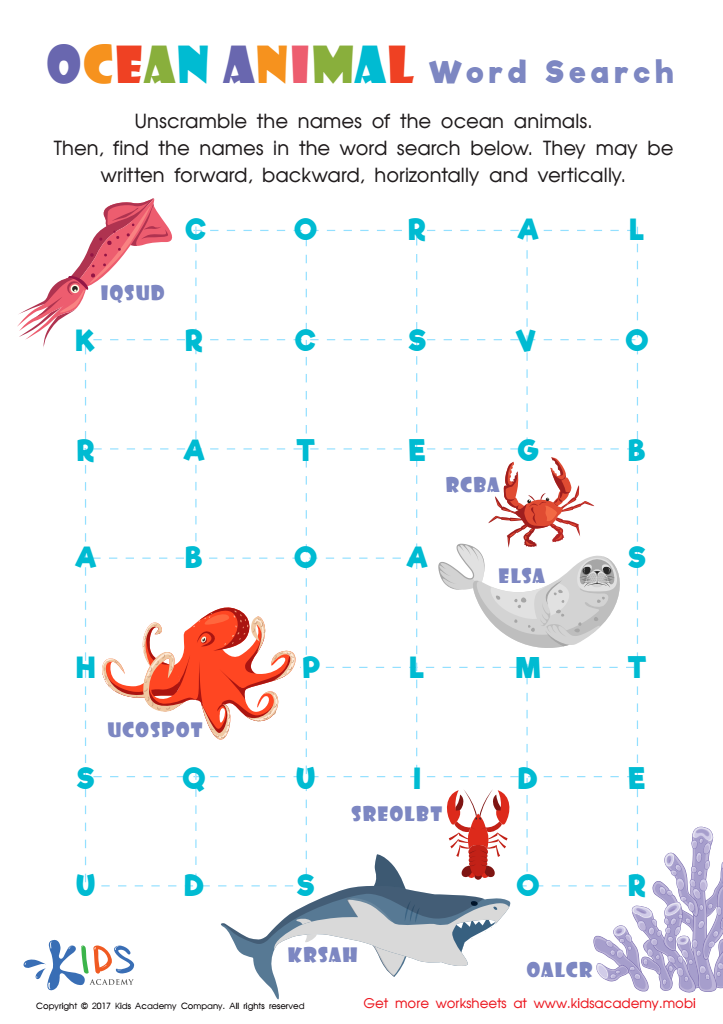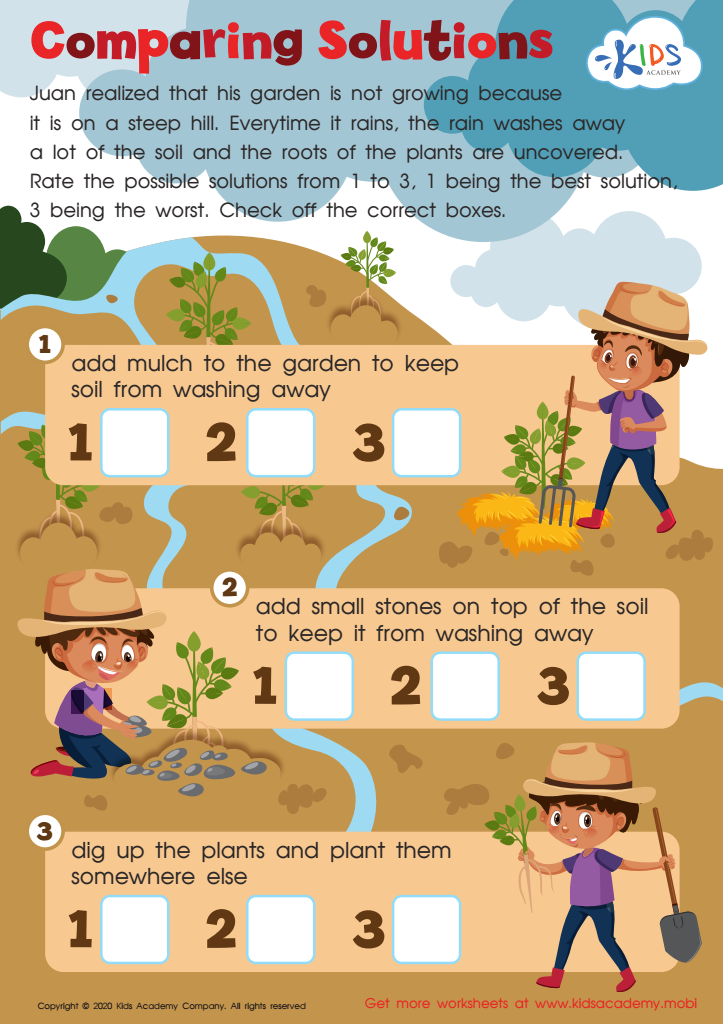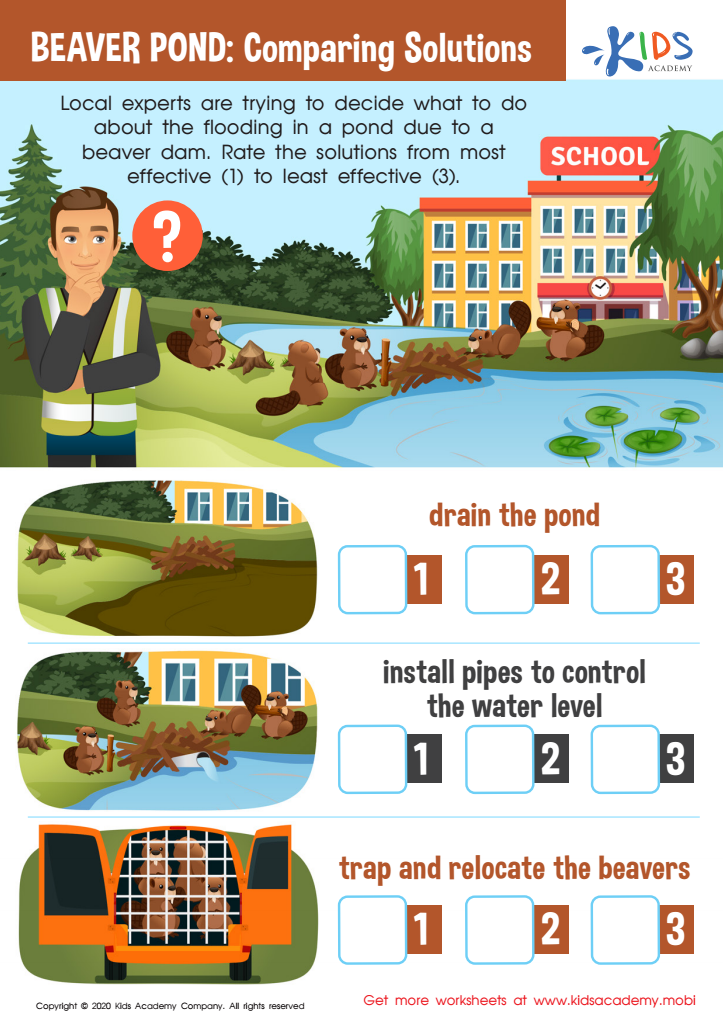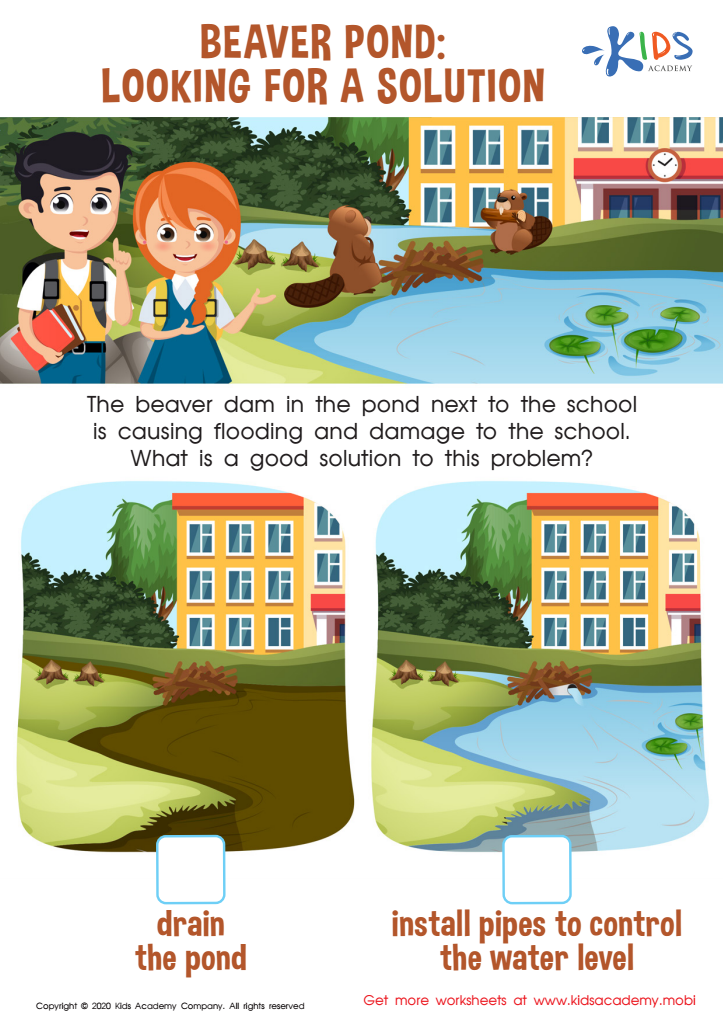Problem-Solving Skills Life Science Worksheets for Ages 7-9
4 filtered results
-
From - To
Our engaging Problem-Solving Skills Life Science Worksheets are designed for children aged 7-9, providing an exciting approach to learning. These worksheets offer interactive activities that stimulate curiosity and encourage critical thinking. By working through real-world scenarios, students practice key problem-solving strategies while exploring essential life science concepts such as ecosystems, habitats, and animal behaviors. Each carefully crafted worksheet promotes analytical skills, ensuring kids not only learn but understand how to apply their knowledge in various contexts. Perfect for classroom use or at-home learning, these resources make science education both fun and effective, setting a strong foundation for lifelong learning.


Ocean Animals Word Search Printable


Comparing Solutions Worksheet


Beaver Pond: Comparing Solutions Worksheet


Beaver Pond: Looking for a Solution Worksheet
Parents and teachers should prioritize problem-solving skills in life science for children ages 7-9 because these skills lay the cornerstone for critical thinking and a deeper understanding of the world. At this developmental stage, children's minds are incredibly curious and highly receptive to new information. Integrating problem-solving in life science allows them to systematically explore their exploding curiosity about nature and living organisms.
Life science, with its hands-on inquiries and experimental approach, provides an ideal platform for building problem-solving abilities. When children investigate why plants grow toward light or how ecosystems function, they learn to ask questions, make observations, and draw conclusions based on evidence. These foundational practices foster a scientific mindset that translates into everyday problem-solving.
Not only does this skillset encourage academic growth, fostering their minds to tackle complex subjects proficiently in later school years, but it also promotes essential life skills. Understanding cause and effect, critical thinking, reckoning evidence, and perseverance through trial and error will benefit them beyond classroom settings, helping in daily decisions, and interpersonal issues, and adapting to unforeseen challenges in life.
Emphasizing problem-solving in life science cultivates an adaptive, inquisitive, and critical mindset in young learners, foundational traits for lifelong learning and success.
 Assign to My Students
Assign to My Students
















